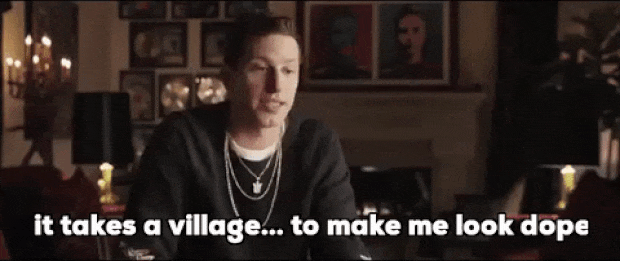
Can't commit? Here's why polyamory might be the right choice for you.
By Em & Lo — Written on Nov 28, 2016
Photo: weheartit

Monogamy has had its turn, so let's give non-monogamy a chance. In a culture dominated by fundamentalist religious values, it's easy to be overwhelmed by the chorus of slut-shaming that arises when the topic of simultaneous multiple partners in a relationship comes up.
But polyamory has its privileges. Here are 10 reasons why responsible non-monogamy might work for you.
1. It's natural.
Check out the book Sex at Dawn: The Prehistoric Origins of Modern Sexuality by Christopher Ryan and Cacilda Jethá. Monogamy didn't arise until fairly late in human history, with the notion that wives and children were the property of the husband.
2. Our culture is awash in it.
The fact that terms like divorce, cheating, adultery, infidelity, slut, player, and industries like prostitution and pornography exist at all is a testament to the fact that sexual variety is a basic human need for many people.
3. It takes a village.
Families can reap significant benefits from sharing the all-consuming workload of parenting among a number of loving, devoted adults. Wouldn't it be nice, when you're exhausted and drained, or have no clue how to deal with a particular crisis, for there to be more than one other person in the house who can help? That's one of the benefits of polyamory.
4. Variety can be hot.
C'mon, fess up: Don't you sometimes fantasize about someone else, even if you're committed to someone you love dearly? National newsmakers are telling us that fantasies (and masturbation) are the same as adultery. Wouldn't it be better to be in a relationship where the way you are is OK and you didn't have to hide it from your partner?
5. Jealousy and possessiveness can be toxic emotions.

Newscult
Committed relationships are best when we take the risk to be intimate and vulnerable. But there is no requirement to hand over to any other person the power to completely devastate us if they have a fling with another lover.
Allowed to run rampant, jealousy and possessiveness lead to emotional and physical abuse, and sometimes even murder. If jealousy is tearing you apart, it's a mental health issue and therapy could probably do some good.
6. Human (especially women's) sexual orientation is fluid.
If you get deep satisfaction from shared loving with more than one gender, lifelong monogamy would have you pick one and forever abandon any others. Non-monogamy doesn't make you choose.
7. Tight sexual boundaries lead to profound frustration.

EliteDaily
If you're lucky, you grow and change as the years pass. Your sexual needs and wants are part of that very natural process, but there's no guarantee that they'll evolve in lockstep with your partner's. Ask prostitutes how many of their clients come to them asking for things their partners refuse to do for them.
With non-monogamy, you don't have to choose between never getting those needs or wants satisfied and throwing away the entire relationship, just for the freedom to find the kind of sex you want with someone else. You can have those needs satisfied while letting your partner maintain any boundaries he or she feels are essential.
8. The more the merrier.
Some people are turned on by the thought of their lover having sex with another person, and there are, of course, many other fantasies and desires that involve more than one person in the bed at a time. Open relationships allow you the freedom to go there.
Related Stories From YourTango:
9. Bad things can happen to good people.
Disease, accidents, and mental health problems can rob a person of the desire or ability to function sexually. Why condemn their loving partner to a sexless or dramatically limited love life from that point forward? Openness and flexibility in the relationship at that point would probably be much better for all involved.
10. Extra scrabble partners.
Enough said. You can never have too many of those.
YourTango may earn an affiliate commission if you buy something through links featured in this article.
This article was originally published at Em & Lo. Reprinted with permission from the author.



